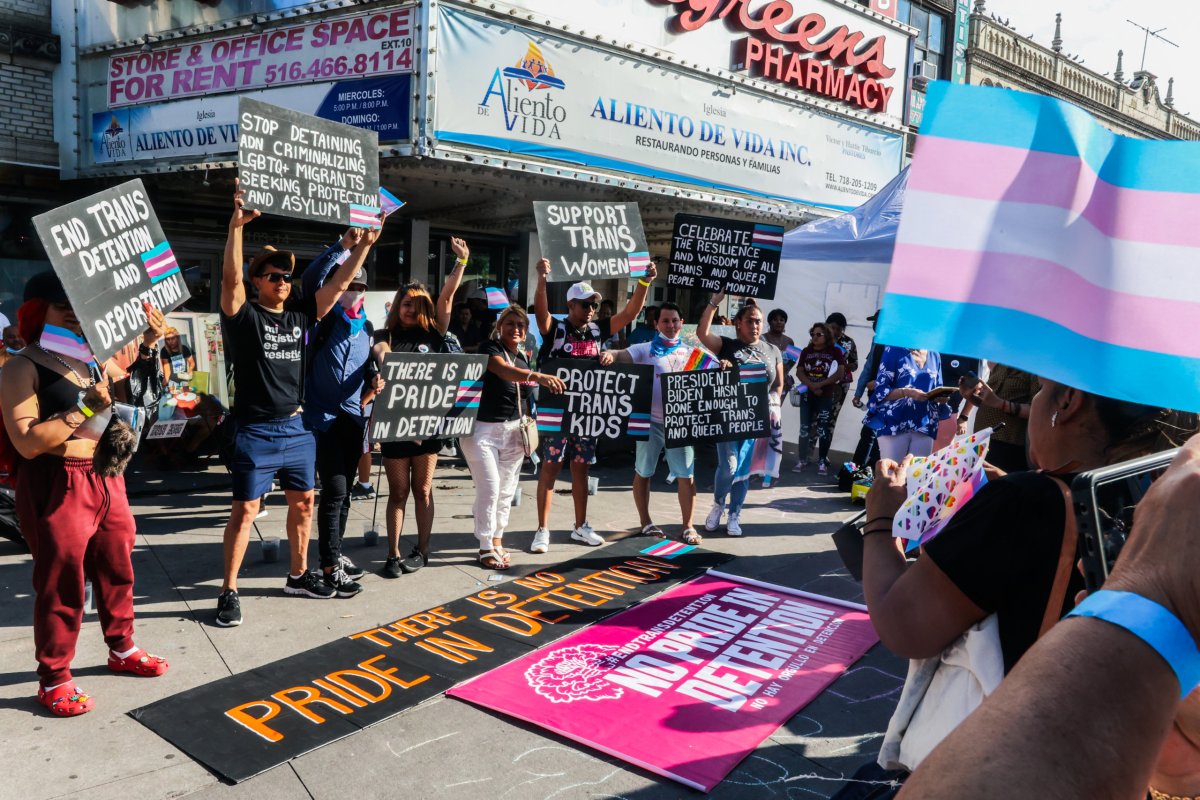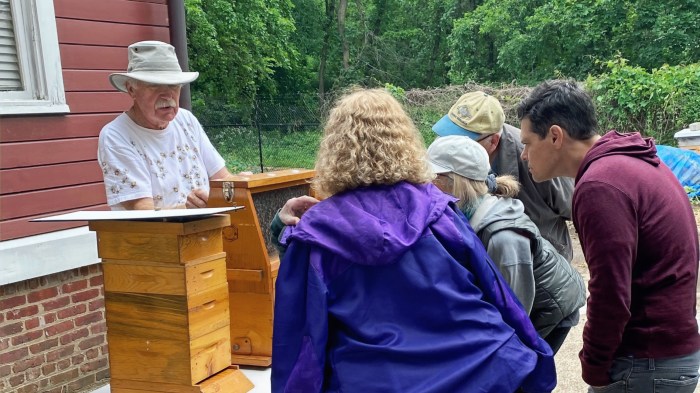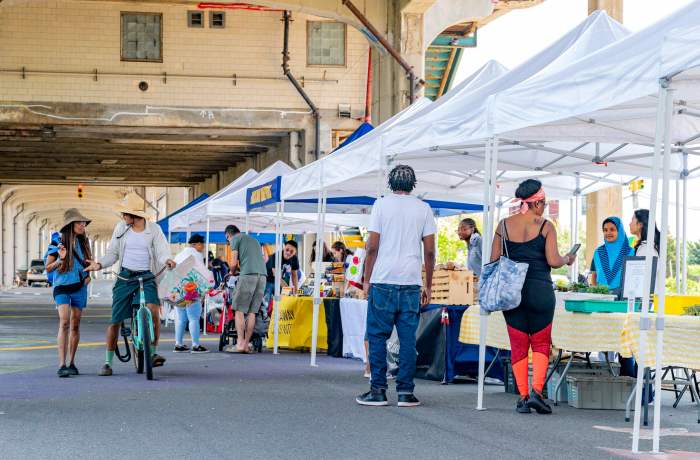Make the Road New York (MRNY) hosted its 11th Annual Trans Latinx March Saturday, July 9, in Corona, focusing on protections for all trans and nonbinary workers.
About 400 people attended the march at Corona Plaza, where protesters demanded workplace protections regardless of industry. Mateo Guerrero, MRNY program manager, said that despite New York state passing legislation guaranteeing no one can be fired based on gender identity, it still occurs.
“There are still a lot of [loopholes] that employers use such as ‘We can’t offer more hours,’ [or] ‘There is less work to do,’ and slowly push out folks from their area of work,” Guerrero said.
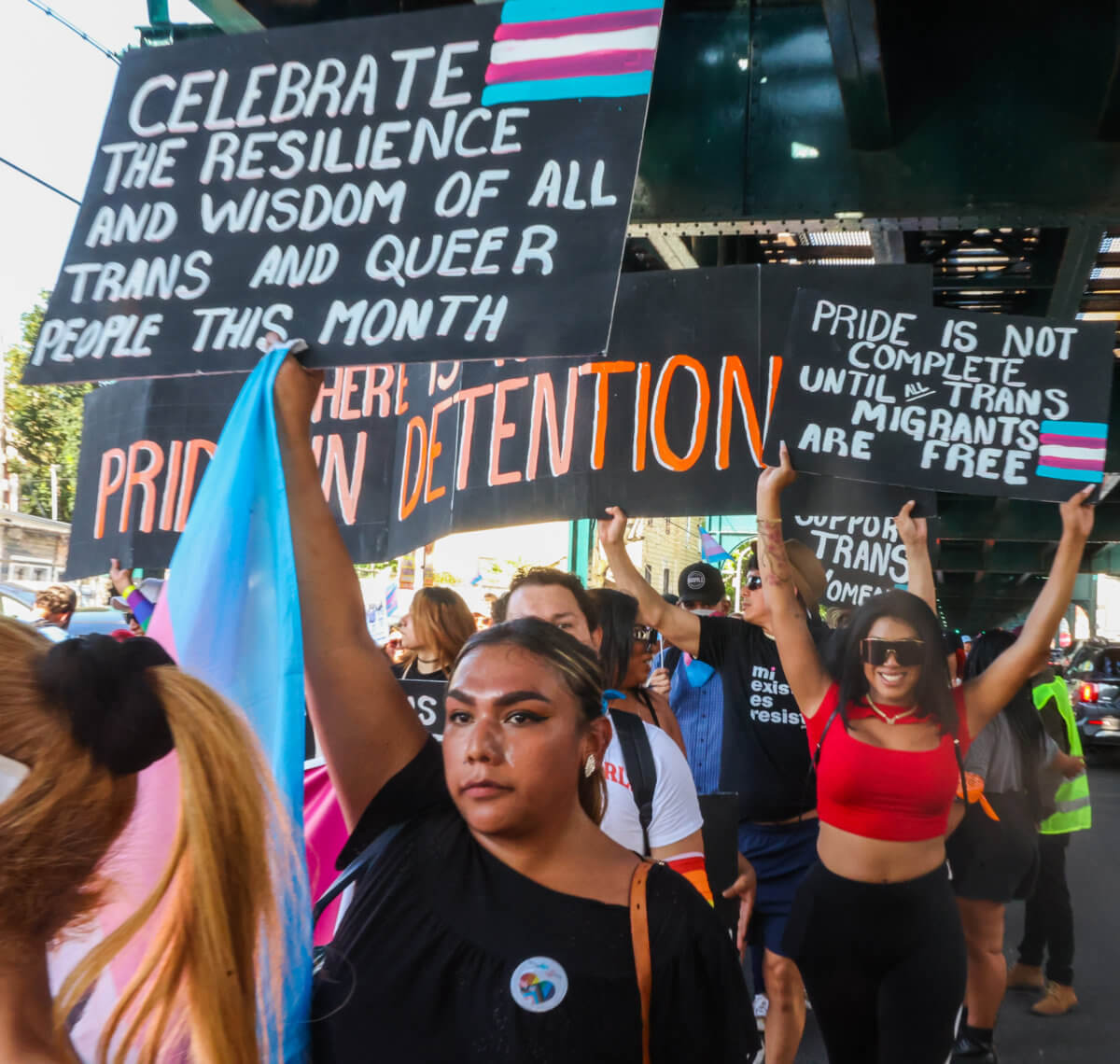
MRNY also demanded cultural competency training at work to provide safer spaces for trans employees.
The event opened with testimonies from trans workers who have faced discrimination at work, then marched down Roosevelt Avenue and up 37th Avenue to show trans support and demand employment.
“The purpose of marching over Roosevelt Avenue was for local business owners to see trans communities and to hear the demands of hiring us,” Guerrero said.
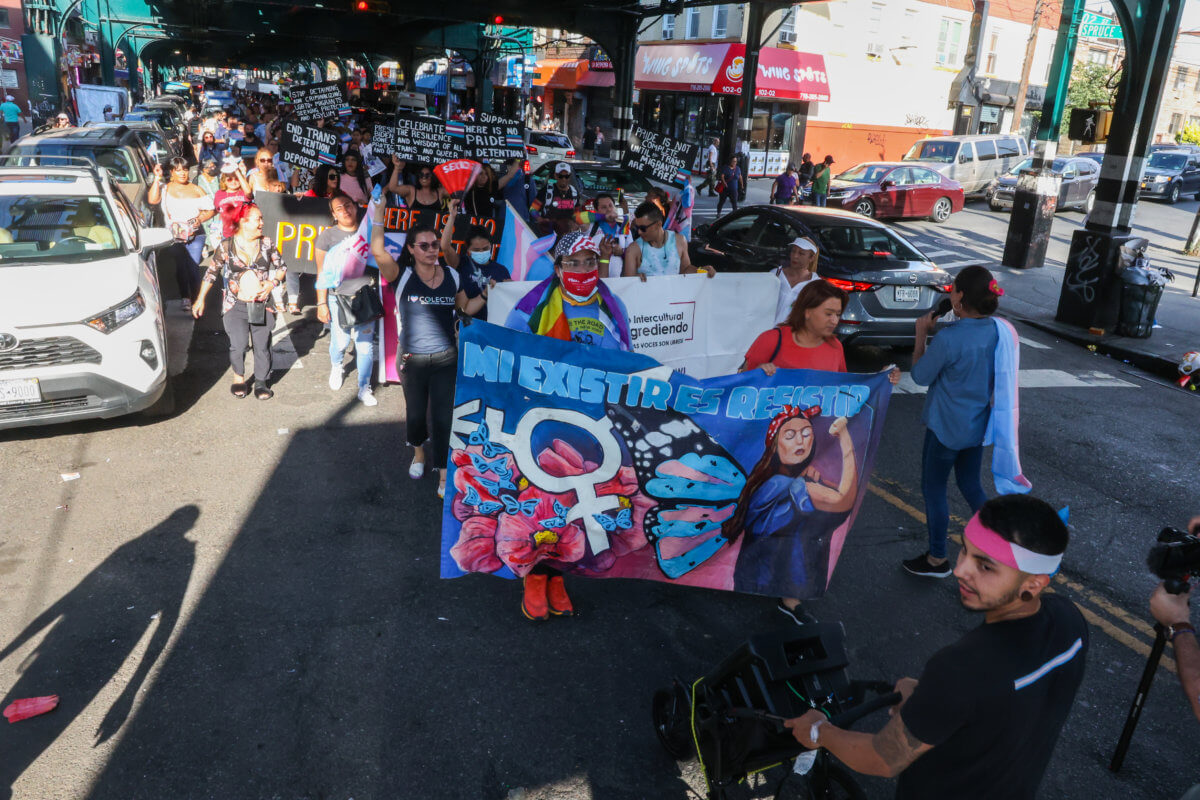
There was also a small sit-in at Junction Boulevard as a show of solidarity for sex workers who receive no protection and experience violence. This is where MRNY emphasized that whether sex work or a construction job, no trans and gender-nonconforming person should be discriminated against.
“In the state of New York, there are no protections for sex workers, and we need to make sure we pass Stop Violence in the Sex Trades bill to end the pipeline from criminalization to deportation,” Guerrero said.

